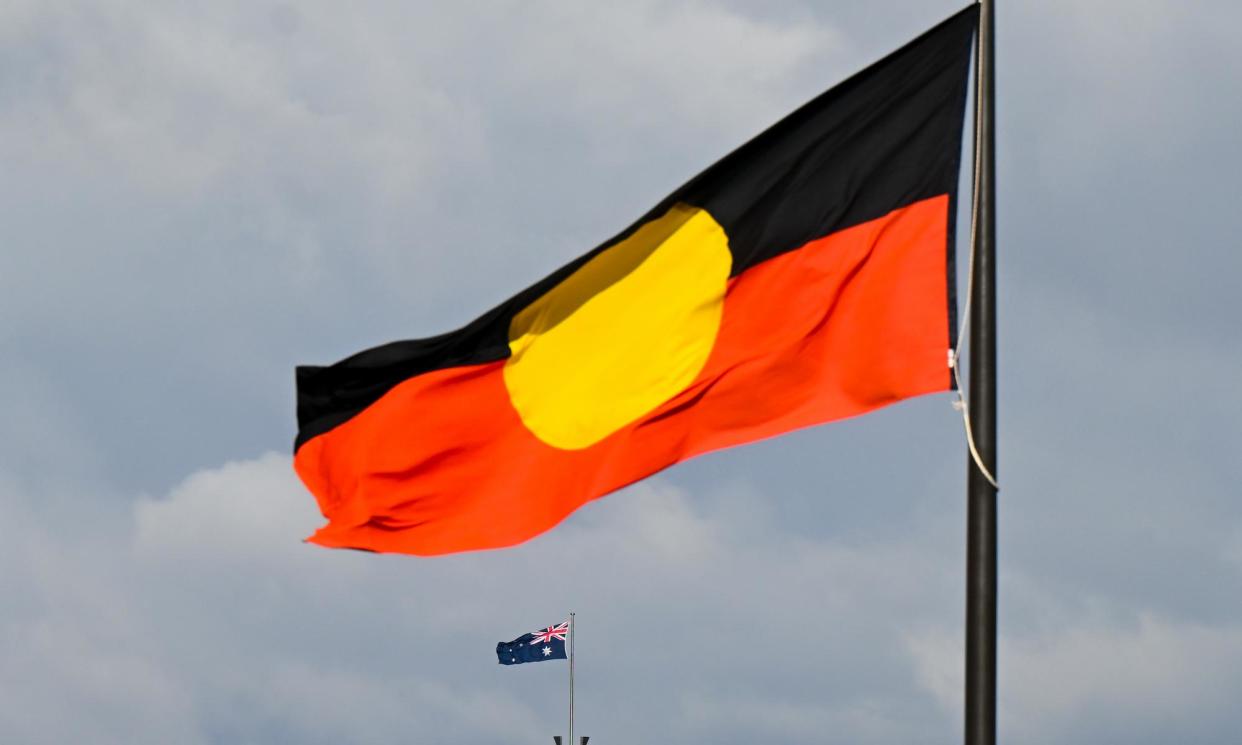‘Little if any justice’ for many murdered and missing First Nations women and children, landmark report finds

There has been “little, if any, justice” for many First Nations women and children who have been murdered or disappeared, according to a landmark federal inquiry report released on Thursday.
In “too many” instances, perpetrators have not been held to account for their shocking crimes, senator Paul Scarr said as the final report of the landmark inquiry into missing and murdered Indigenous women and children was tabled.
“What happened to these women and children is reprehensible. Often it was predictable and preventable. And it continues to happen,” Scarr said.
Related: ‘How did I get here? I came from a good home’: the violent patterns that haunt Indigenous women
“The committee heard loud and clear the exasperation, frustration and, in some cases, well-founded anger of those with whom it engaged. In response, the committee intends this report to be a call to action,” he said.
The inquiry, which was first announced in 2021, came after sustained campaigning by First Nations women and advocates across many sectors, including politics, media, health and the law.
The Greens senator for Western Australia, Dorinda Cox, declared in her 2022 maiden speech that such an investigation was one of her highest priorities.
On Thursday, Cox said she felt “immense love and respect for the people who have spoken to us” but that the final report did not go far enough.
The report made 10 recommendations, including that:
Federal, state and territory governments codesign with First Nations a culturally appropriate and nationally significant way in which to recognise and remember the First Nations women and children that have been murdered or disappeared.
The attorney general tasks the police ministers council to review existing police practices in each jurisdiction and aim to develop best police practices across Australia by no later than 31 December 2025.
A parliamentary committee or other appropriate body monitors progress in meeting this recommendation, as well as the progress of measures adopted by the government to address discernible data gaps in this area.
The government appoints a First Nations person with specific responsibility for advocating on behalf of and addressing violence against First Nations women and children.
The government increases the geographic spread and capacity of family violence prevention legal services.
The government develops a sustainable funding mechanism to provide ongoing support services for First Nations people, including women and children experiencing domestic, family and sexual violence.
The government empowers First Nations women to lead the design and implementation of services and supports that address violence in their communities.
The Australian National Audit Office gives serious consideration to assessing whether the government is effectively delivering on the commitments under the national agreement on closing the gap on violence against women and children.
Cox told the Senate: “This report is about deliberate actions and failures of a system that has at its heart racially and gendered violence. It is, in fact, a form of genocide when the system doesn’t properly respond to save the lives of First Nations people, and there must continue to be outrage about this happening in a modern day country like Australia.”
Cox said the “glaring omission” in the report was a recommendation about urgently improving data collection about missing and murdered women and children.
“We’re extremely concerned that the report’s recommendations are not reflective of the urgent change and investment that is actually required. Problems have, in fact, been identified, but the recommendations don’t contain many solutions,” she said.
“Much has been written about the harrowing nature of the stories heard during the inquiry, and it’s important that we hear about the suffering. It’s our job to stop the suffering. But it won’t happen until we get frontline government services to care, and sometimes the message that we get is some people don’t care.”
Cox said the Greens had filed a dissenting report seeking to “put some real targets in place, get some clear data, so that we can actually hold people to account, particularly to do their job”.
An Albanese government spokesperson said the recommendations are significant and the government will work through them carefully.
They thanked the families who gave evidence and who continue to endure tragedy and loss.
“Every experience represents real and significant grief to families and entire communities. These are significant recommendations and the government will work through them carefully,” they said. “We would like to give our thanks to the witnesses who came forward – they are the families and loved ones who have and continue to endure tragedy and loss, and we thank them for sharing their experiences with the committee.”
Earlier on Thursday, the specialist Indigenous family violence support service Djirra called for accurate and up-to-date data on the rate of violence, urgent investment in frontline family violence prevention and legal services and for police to “thoroughly investigate” every report of violence against an Aboriginal woman or child.
Djirra chief executive, Antoinette Braybrook, said the findings “must not be another report that sits on a shelf gathering dust”.
“Truth is uncomfortable. It can be painful. But it must be spoken, written down and heard. And governments must act upon it,” Braybrook said. “You cannot un-hear us now.
“We will always remember what the government does now. We are watching, and we will continue to demand change,” she said.


